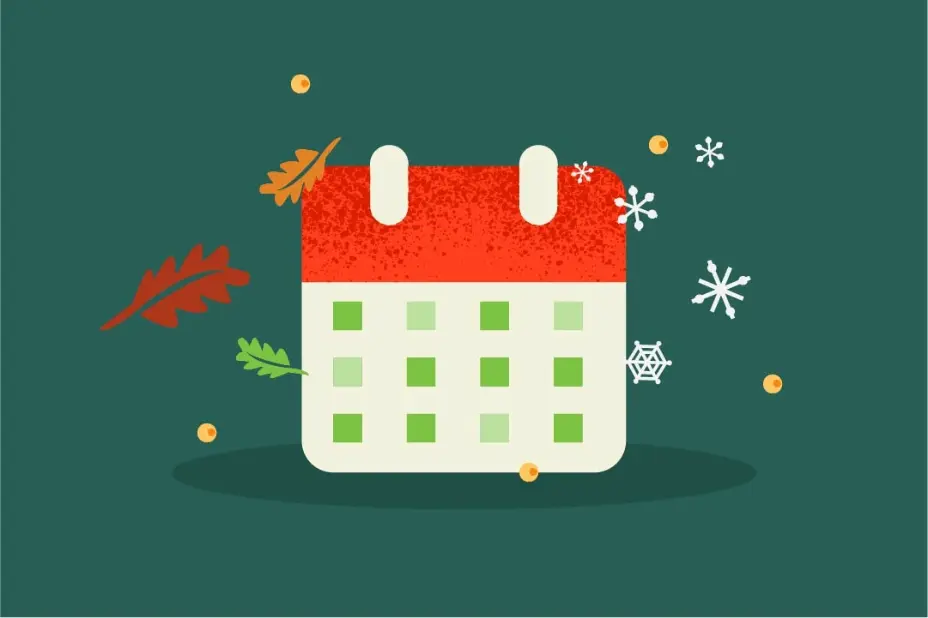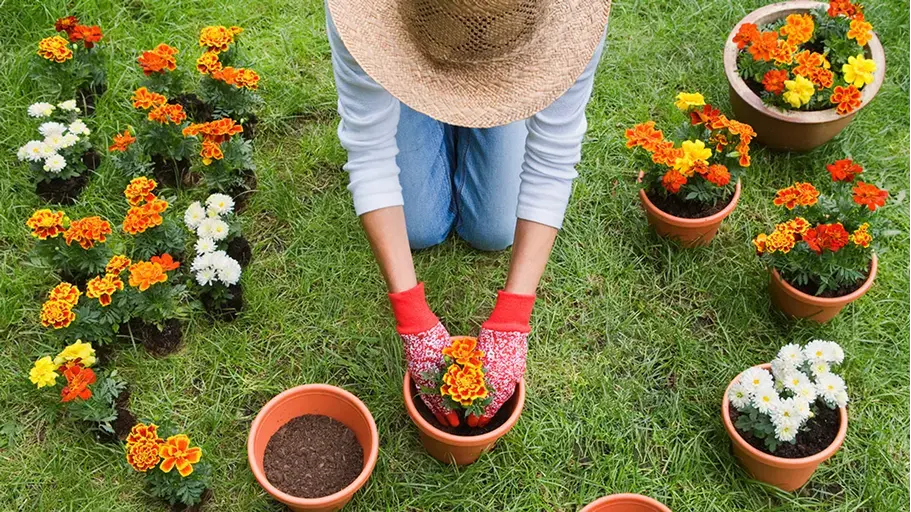What are Seasonal Allergies?
Seasonal allergies can cause symptoms at specific times of the year if you have an allergy to certain pollen spores in the air. Also referred to as seasonal allergic rhinitis or “hay fever”, seasonal allergies differ from perennial allergies, which can occur all year-round1.
Plants release their pollen at different times, so depending on which type of pollen triggers your reaction you may only experience seasonal allergy symptoms for one or two months annually.
Read on to learn more about seasonal allergies, when you’re most likely to be affected, and how to manage your allergy symptoms – so you can enjoy your day to day, indoors and out, all year long.
When is Allergy Season?
If you’re wondering “is it allergy season?”, well, it might be, depending on where you are and what allergens you’re allergic to. Allergy season can mean different things to different people. Generally, it depends on when the type of pollen you’re allergic to is released into the air2. Different plants release their pollens at different times throughout the year.
If you’re allergic to just one allergen, you may only experience allergy season for the same few weeks or months every year. However, if your symptoms are triggered by a few different allergens, then you might find yourself affected for two or more seasons.
In short, all four seasons can be “allergy season”, depending on your triggers.
Spring Allergy Season
Allergens

Tree

Grass Pollen

Weed Pollen
Warmer weather following the winter might be a welcome change, but remember to make sure you’re prepared for spring’s biggest outdoor allergy trigger – tree pollen! The first big seasonal allergen to hit the air, it is probably the most infamous, but other potential causes of spring allergies can include types of grass and weed pollen – such as orchard, saltgrass and fescue – that become more widespread1,3.
On breezy days especially, your spring allergies may intensify as the wind carries this pollen through the air much easier. Stay on top of daily pollen counts so you know which trees – cedar, maple, or oak, for example – might cause you to sneeze and sniffle during spring4.
Learn more about spring allergies
Summer Allergy Season
Allergens

Grass Pollen

Fungus Spores

Mold
Summer is all about outdoor fun – but you’ll want to make sure you can enjoy it without an allergy flaring up. Many things in nature are pollinating during this season, but the major trigger of summer allergies is grass pollen. Plan ahead and avoid cutting the lawn on days you’ll be entertaining, throwing a BBQ or relaxing outdoors – as this will scatter the grass and pollen around.
Hot and humid weather also creates the prime environment for mold to grow, which can be another trigger for allergies in general. From July to early fall, allergic symptoms from fungus spores can be most common – growing on grasses, grains, logs and compost piles5.
Learn more about summer allergies
Fall Allergy Season
Allergens

Weed Pollen

Mold

Dust
While the crisp air might feel nice, fall allergies can often be triggered by weed pollen. Ragweed, a common allergen, grows just about anywhere – but even if you don’t live near any, its pollen can travel for miles with the wind and trigger your symptoms6.
Mold can also be an issue, as it can develop on both wet soil and fallen leaves. As we start to spend more time indoors when the weather cools, turning on heating can stir dust mites into the air for the first time too – another common year-round cause of allergies7.
If your allergies are severe, try keeping windows and doors shut at home and in your car.
Learn more about fall allergies
Winter Allergy Season
Allergens

Weed Pollen

Mold

Dust
During winter, outdoor pollen levels are lower than usual. However, some people are affected by indoor allergies which can be triggered by mold, dust mites, pets, and Christmas trees8. These allergies are year-round, or “perennial”, but may be experienced more often in winter – as we generally spend more time inside when it’s cold.
Exposure to our pets increases as they spend more time indoors, which in turn can trigger allergy symptoms if you’re allergic to pet dander. Running a humidifier at 50% humidity or higher can also encourage dust mite growth8. Help keep indoor allergies at bay by vacuuming more often or running a HEPA (high-efficiency particulate air) filter.
Learn more about winter allergies
Seasonal Allergy Symptoms
The seasonal allergy symptoms you experience may vary depending on the specific allergen that triggers your immune system, and the severity of your allergies. It’s not always easy to identify whether your symptoms are related to a seasonal allergy or another condition, but common signs can include2:
Nasal Congestion
Sneezing
Itchy Eyes
Itchy Nose
Sinus Congestion & Pressure
Runny Nose
Watery Eyes
Itchy Throat
How to Help Relieve and Treat Your Seasonal Allergy Symptoms
While you can’t prevent seasonal allergies altogether, you can reduce your exposure to allergens and the impact of them.
Some the easiest lifestyle solutions for seasonal allergies involve trying to avoid your triggers, whatever the time of year. A few ways you might be able to do this include9:
Staying inside on dry, windy days when the pollen count may be high
Washing clothes and showering after being outside, to rinse off allergens
Closing doors and windows at night
Using air conditioning at home and in your car – a HEPA filter can help
There are also various over-the-counter, non-prescription medications that might help ease your symptoms9. Treatments you can try to provide seasonal allergy relief can include10,11:
Antihistamines – medications with active ingredients such as cetirizine help to block or reduce histamines that cause allergy symptoms.
Decongestants – these can provide temporary relief from nasal stuffiness, and are often available as tablets, liquids or nasal sprays
Combination medications – certain types of allergy medication combine antihistamines and decongestants to relieve more symptoms at once, such as ZYRTEC-D®
Immunotherapy – a series of shots given by your allergy doctor that aims to help your body develop immunity or tolerance to the allergen
Nasal corticosteroids – these nasal sprays work to reduce inflammation and allergy symptoms
If you have questions about the best way to relieve your worst allergy symptoms, talk to your doctor.
Find Seasonal Allergy Relief
Need a little help with your allergies? ZYRTEC® relieves your worst allergy symptoms, whether they’re from seasonal or year-round allergies. ZYRTEC® starts working at hour 1 and stays strong day after day. Learn more about the ZYRTEC® family of products.
References
https://www.fda.gov/consumers/consumer-updates/allergy-relief-your-child
https://my.clevelandclinic.org/health/diseases/8622-allergic-rhinitis-hay-fever
https://www.fda.gov/vaccines-blood-biologics/standardized-grass-pollen-allergenic-extracts
https://aafa.org/allergies/types-of-allergies/pollen-allergy/
https://www.mayoclinic.org/diseases-conditions/hay-fever/in-depth/seasonal-allergies/art-20048343
https://www.fda.gov/consumers/consumer-updates/seasonal-allergies-which-medication-right-you
https://health.clevelandclinic.org/can-allergies-go-away-or-develop-as-you-age/
https://health.clevelandclinic.org/how-long-does-allergy-season-last/
Links to other parties’ articles and websites are provided for convenience only. Kenvue is not responsible for their content.

